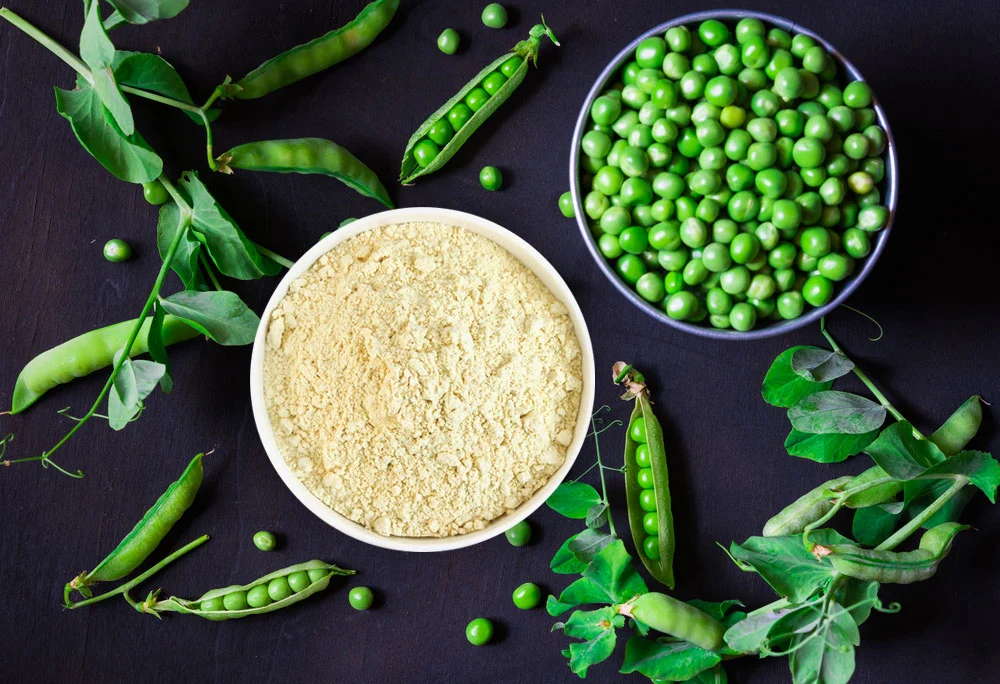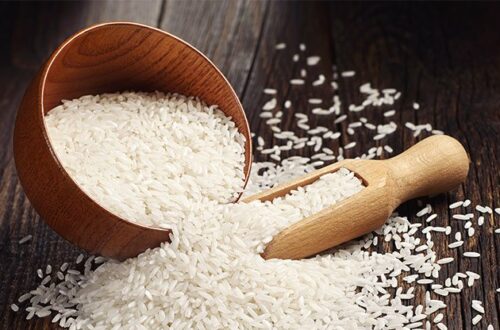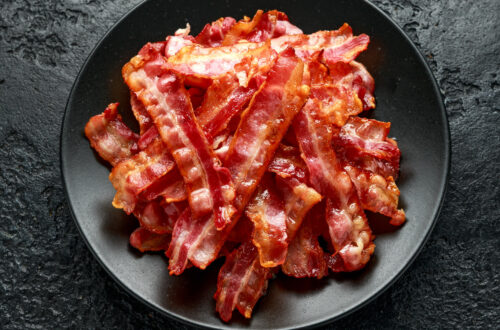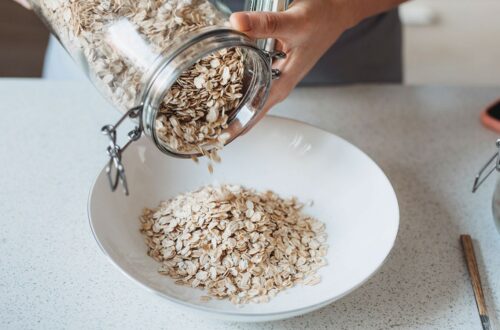Understanding Pea Protein Powder
What is Pea Protein Powder?
Pea protein powder is a dietary supplement made from yellow peas (Pisum sativum). Through a process of extracting protein from the peas, manufacturers produce a fine powder that is rich in protein and low in carbohydrates and fat. It serves as an alternative source of protein for individuals following vegetarian, vegan, or plant-based diets, as well as those with dairy or soy allergies.
Nutrition Profile of Pea Protein Powder
Pea protein powder offers a variety of essential nutrients, including:
- Protein: Pea protein powder is rich in protein, providing all nine essential amino acids necessary for muscle growth, repair, and overall health.
- Fiber: Although lower in fiber compared to whole peas, pea protein powder still contains some dietary fiber, which supports digestive health and helps maintain satiety.
- Vitamins and Minerals: While not as abundant as in whole peas, pea protein powder contains vitamins and minerals such as iron, calcium, magnesium, and B vitamins.
Benefits of Pea Protein Powder
High-Quality Protein Source
Pea protein powder is considered a high-quality protein source, providing a complete amino acid profile essential for muscle building and repair.
Several studies have demonstrated that pea protein is comparable to whey protein in promoting muscle protein synthesis and enhancing muscle recovery after exercise. Its rich amino acid composition, particularly its high leucine content, makes it an effective protein supplement for athletes and fitness enthusiasts.
Digestive Health Support
Pea protein powder contains fiber, which can support digestive health by promoting regular bowel movements and improving gut microbiota composition.
While not as fiber-rich as whole peas, pea protein powder still contributes to daily fiber intake. Studies have shown that dietary fiber from pea protein sources can help alleviate constipation, regulate bowel movements, and support overall digestive function.
Weight Management Aid
Pea protein powder is low in calories and fat, making it a suitable option for individuals looking to manage their weight or reduce calorie intake.
Research suggests that incorporating pea protein powder into a balanced diet can help promote satiety and reduce overall calorie consumption. Its high protein content and slow digestion rate may also contribute to prolonged feelings of fullness, aiding in weight management efforts.
Allergen-Friendly Alternative
Pea protein powder is free from common allergens such as dairy, soy, and gluten, making it a safe option for individuals with food sensitivities or allergies.
Unlike whey or soy protein, pea protein powder does not contain lactose or allergenic proteins, making it suitable for individuals with lactose intolerance or milk allergies. Its hypoallergenic nature and versatility make it a popular choice for those seeking allergen-friendly protein supplements.
Sustainable and Environmentally Friendly
Yellow peas require fewer natural resources, such as water and land, compared to animal-based protein sources, making pea protein powder a more sustainable and environmentally friendly option.
Studies have shown that pea protein production has a lower environmental impact compared to livestock farming. Growing peas requires less water, fertilizer, and land, and produces fewer greenhouse gas emissions, contributing to overall sustainability and eco-friendliness.
Side Effects of Pea Protein Powder
Flatulence and Digestive Discomfort
Some individuals may experience flatulence, bloating, or digestive discomfort when consuming pea protein powder, particularly in large amounts or if they have sensitivities to certain carbohydrates found in peas.
Management
To minimize digestive discomfort, start with small servings of pea protein powder and gradually increase intake over time. Additionally, ensure adequate hydration and consider choosing pea protein isolate, which contains lower amounts of carbohydrates.
Allergic Reactions
While rare, allergic reactions to pea protein powder can occur in individuals with allergies to legumes, such as peas, lentils, or chickpeas.
Management
If you have known allergies to legumes or experience symptoms such as itching, swelling, hives, or difficulty breathing after consuming pea protein powder, discontinue use immediately and seek medical attention.
Frequently Asked Questions (FAQs)
Is pea protein powder suitable for individuals with kidney disease?
Yes, pea protein powder is generally considered safe for individuals with kidney disease, as it is low in phosphorus and potassium, which are minerals that need to be restricted in renal diets. However, it is advisable to consult with a healthcare provider or registered dietitian before incorporating pea protein powder into your diet, especially if you have kidney disease or other medical conditions.
Can pea protein powder be used as a meal replacement?
While pea protein powder can contribute to overall protein intake, it should not be used as a sole source of nutrition or meal replacement. It is essential to consume a balanced diet that includes a variety of nutrient-rich foods to meet your body’s needs for vitamins, minerals, and other essential nutrients.
Is pea protein powder suitable for children?
Pea protein powder can be suitable for children as part of a balanced diet, but it should not replace whole, nutrient-rich foods in their diet. It is essential to monitor portion sizes and ensure that children consume a variety of foods to meet their nutritional needs for growth and development.
Can pea protein powder cause weight gain?
Pea protein powder, like any other protein supplement, is not likely to cause weight gain when consumed as part of a balanced diet. In fact, protein can help promote satiety and support weight management efforts by reducing overall calorie intake and preserving lean muscle mass.
Is pea protein powder safe for pregnant or breastfeeding women?
Pea protein powder is generally considered safe for pregnant or breastfeeding women when consumed in moderation as part of a balanced diet. However, it is essential to consult with a healthcare provider or registered dietitian before using pea protein powder supplements during pregnancy or lactation to ensure safety and efficacy.
Can pea protein powder be used in cooking and baking?
Yes, pea protein powder can be used in cooking and baking to boost the protein content of various recipes, such as smoothies, pancakes, muffins, and energy bars. It is a versatile ingredient that can be easily incorporated into both savory and sweet dishes.
Does pea protein powder have a strong taste?
Pea protein powder may have a slightly earthy or grassy taste, which some individuals may find off-putting. However, flavored varieties of pea protein powder are available, such as chocolate, vanilla, or berry, which can help mask the taste and enhance palatability. Additionally, mixing pea protein powder with other ingredients, such as fruits, nut butter, or plant-based milk, can help improve the flavor and texture of protein shakes and smoothies.
- What Is Better Than Tear Trough Filler? - May 31, 2025
- Profhilo Treatment Near Tandridge, Surrey - May 31, 2025
- Obagi Nu-Derm System Skincare Steps In Kingston Upon Thames Surrey London - May 31, 2025






